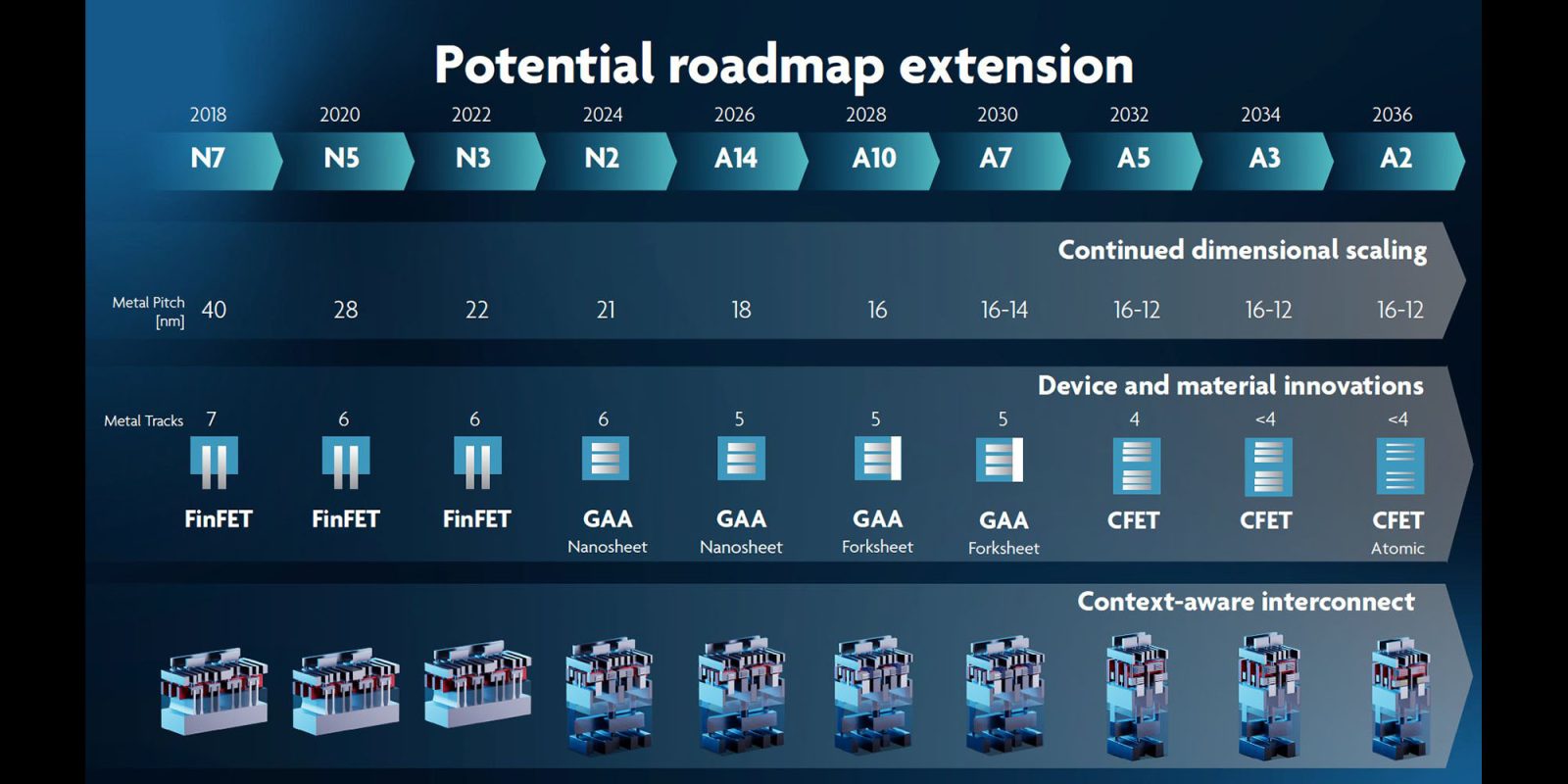
There’s no letup in the race toward ever smaller processes. It’s just a couple of days since we heard that TSMC has shown Apple test results from a 2nm chip, and the company is already discussing the next generation – using a 1.4nm process.
Somewhat confusingly, TSMC is switching from the N prefix it has used in the past to an A prefix – meaning that the 1.4nm chips will be labelled as A14 – the same name Apple gave to the 5nm chip used in the iPhone 12 line-up …
From 3nm to 2nm
The A17 Pro chip used in the iPhone 15 Pro and Pro Max, as well as the M3 chip in the latest Macs, use a 3nm process. We’ll see variants of this process used in next year’s iPhone 16 Pro devices.
TSMC is aiming to progress to a 2nm process for the chip slated for the iPhone 17 Pro in 2025.
TSMC confirmed that its work on 2nm chips is “progressing well and on track for volume production in 2025, and will be the most advanced semiconductor technology in the industry in both density and energy efficiency when it is introduced.”
The Financial Times reported earlier this week that TSMC has already shared test data with Apple.
TSMC, which dominates the global market in processors, has already shown the process test results for its “N2” — or 2 nanometre — prototypes to some of its biggest customers, including Apple and Nvidia, according to two people with direct knowledge of the discussions.
TSMC 1.4nm chips
In a tweet from a TSMC presentation spotted by MacRumors, semiconductor consultant Dylan Patel says that the 1.4nm process to follow will be named A14.
The company had previously indicated (top photo) that we might expect to see this in 2026, but is now holding back from giving a timeframe, stating only that it is “in development.”
Given that Apple is TSMC’s most important customer, it seems odd that the chipmaker has chosen a naming scheme which confusingly conflicts with the names of iPhone and iPad processors.
One commenter suggested that this might be to mess with Intel, whose most advanced chip in current development is known as 18A.
FTC: We use income earning auto affiliate links. More.






Comments